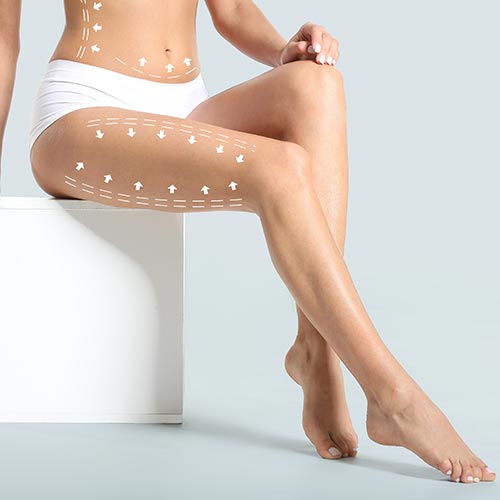Frequently Asked Questions About Plastic Surgery
Plastic surgery is a broad field of surgery that includes various areas such as aesthetic surgeries and reconstructive surgery. In this blog post, we will provide detailed information about plastic surgery, including what it is, its purpose, methods of application, and outcomes.


CONTENTS
What is Plastic Surgery?
Plastic surgery is a branch of medicine that involves surgical procedures aimed at correcting congenital or acquired defects, improving aesthetic appearance, and reducing signs of aging. These surgical procedures are typically performed in areas such as the skin, face, breasts, body contouring, and reconstruction.

What Areas Does Plastic Surgery Include?
Plastic surgery encompasses a broad surgical field, including not only aesthetic surgeries but also reconstructive surgery. Aesthetic surgeries involve procedures for improving appearance, such as body contouring, facial rejuvenation, and breast aesthetics, while reconstructive surgery addresses medical needs like correcting congenital anomalies, healing post-injury wounds, and burn treatments.
Therefore, plastic surgery not only enhances appearance but also helps patients regain body functions. It plays a crucial role in repairing significant tissue losses caused by conditions such as burns, trauma, and cancer.
Additionally, reconstructive surgery offers effective treatment options for cases such as breast reconstruction, repair of tissue defects after cosmetic surgeries, and the correction of facial fractures.
What Is the Purpose of Plastic Surgery?
While plastic surgery is often associated with aesthetic corrections, its primary purpose is to correct structural abnormalities in the body and restore functionality. In other words, the main goal of plastic surgery is to make the patient’s body healthier. Surgical interventions are performed with this goal in mind. For example, correcting facial asymmetry due to congenital issues or accidents, treating scars on the body, and breast reconstruction are all part of the objectives of plastic surgery.
Plastic surgery is not limited to aesthetic improvements in appearance; it also corrects functional abnormalities in the body. This means that it can help address challenges the patient faces in daily life. Therefore, plastic surgery plays an important role not only from an aesthetic perspective but also from a health standpoint. The expert doctors at Regina Med Clinic conduct detailed evaluations before and after surgery to provide patients with the most appropriate treatment plan.
Who Are Suitable Candidates for Plastic Surgery?
Suitable candidates for plastic surgery are generally healthy individuals. However, there may be certain restrictions in specific cases.
First and foremost, candidates for plastic surgery should be individuals who can maintain a healthy lifestyle both before and after surgery, in terms of physical and psychological well-being. Additionally, individuals who smoke or have chronic health issues may not be considered suitable candidates for plastic surgery.
It is also crucial that individuals seeking surgery have realistic expectations. The results seen after surgery may not fully align with the individual’s desires. Therefore, it is important for plastic surgery candidates to be thoroughly informed about what to expect.

Who Performs Plastic Surgery?
Plastic surgeons are medical professionals who specialize in aesthetic and reconstructive surgery. Aesthetic surgery involves surgical interventions aimed at improving a person’s physical appearance, while reconstructive surgery is performed to correct tissue loss or abnormalities caused by accidents, burns, congenital anomalies, and similar conditions.
At Regina Med Clinic, the plastic surgeons use the most up-to-date techniques in their field to address patients’ aesthetic concerns or reconstructive surgical needs. This allows patients to receive the most suitable treatment plan and procedure based on expert opinion.
How Long Does It Take to See the Results of Plastic Surgery?
These surgical procedures are typically chosen to meet a person’s expectations and boost their confidence. However, the timeline for seeing plastic surgery results can vary from person to person.
At Regina Med Clinic, experts inform patients that the visible results of plastic surgery depend on the healing process and the reduction of swelling. The reduction of swelling and the completion of the healing process can typically take a few weeks to several months after the surgery.
What is the Appropriate Age Range for Plastic Surgery?
Plastic surgery is generally known as a field focused on aesthetic appearance. Therefore, the appropriate age range for plastic surgery is very important. In general, the age range for plastic surgery is quite broad. However, the risks of surgical procedures and the individual’s body structure should be taken into account.
If a person feels physically and psychologically ready for surgery, they can undergo plastic surgery after the age of 18. Especially if there is a condition in the body that causes discomfort, surgery can be performed to correct this issue, regardless of the age range.
What Are the Most Common Techniques Used in Plastic Surgery?
Plastic surgery is divided into two main categories: aesthetic and reconstructive. The most commonly used techniques in plastic surgery vary between these two fields. In aesthetic plastic surgery, techniques such as breast augmentation, breast reduction, rhinoplasty (nose surgery), liposuction, and tummy tucks are frequently applied. In reconstructive plastic surgery, techniques like wound healing, burn treatment, and breast reconstruction are commonly used.
At Regina Med Clinic, aesthetic and reconstructive plastic surgery procedures performed by expert plastic surgeons utilize the latest techniques and equipment. This ensures that patient satisfaction and health are prioritized. Choosing the right techniques and performing them by skilled professionals results in successful outcomes.
What Methods Are Used in Plastic Surgery?
The techniques used in plastic surgery are determined during a detailed consultation with your specialist. The choice of techniques depends on the patient’s desires, health status, body structure, and expectations. At Regina Med Clinic, expert doctors create personalized treatment plans for each patient and apply the most suitable techniques.
What Should Be Considered Before Undergoing Plastic Surgery?
There are several important points to consider before opting for such an operation. First, it is essential to remember that plastic surgery is a surgical intervention. Therefore, it should be performed by a qualified doctor and thoroughly planned.
Additionally, being realistic about the results of the surgery is crucial. While it is possible to achieve the desired appearance with plastic surgery performed at an experienced and specialized clinic like Regina Med Clinic, it is important to discuss the post-surgery process and outcomes in detail with the doctor, as every body is different.
Furthermore, closely following the recovery process and adhering strictly to the doctor’s recommendations after the surgery is vital. This helps minimize the risk of undesirable results. Conducting thorough research and consulting with a qualified doctor before undergoing plastic surgery is essential for ensuring a successful outcome.
How Long Does It Take for Plastic Surgery to Show Results?
According to plastic surgery specialists at Regina Med Clinic, the results of each surgical procedure can vary from person to person. However, the first visible results usually begin to appear within a few weeks after the surgery. Swelling and bruising may be present immediately following the procedure, but these symptoms typically subside within a few weeks.
The healing of the stitches and the full recovery of the body may take longer. The recovery process depends on the individual’s overall health, the type of procedure, and body characteristics. Therefore, it may take several months to see the final results of the surgery.
What Should I Consider Before Plastic Surgery Procedures?
When considering plastic surgery procedures, there are a few important factors to keep in mind. First, selecting the right surgeon is a critical step. Choosing an experienced, qualified plastic surgeon is essential for both success and safety. Reviewing the surgeon’s certifications, experience, and ensuring they have successfully performed similar procedures can provide reassurance to the patient.
Secondly, it is important for the individual to establish clear goals before the surgery and discuss them with the surgeon. Having realistic expectations can enhance satisfaction after the procedure.
A thorough evaluation before the surgery is also necessary. The surgeon should assess the patient’s medical history, overall health, and suitability for the procedure. This evaluation is crucial for minimizing potential risks and achieving the best possible results.
What is the Recovery Process After Plastic Surgery?
The recovery process after plastic surgery can vary depending on the type of surgery, the patient’s body structure, and overall health. Generally, the recovery period progresses according to the individual’s lifestyle and adherence to the doctor’s instructions. Immediately following the surgery, common symptoms may include pain, swelling, and mild bleeding, which gradually subside over time as the body heals.
For optimal recovery, patients may need to adjust their lifestyle. For instance, smoking, alcohol consumption, or significant weight gain during the recovery period can negatively affect healing. Following the doctor’s recommendations and adopting a healthy lifestyle are crucial for a smooth recovery.
For major plastic surgery procedures, such as breast augmentation or reduction, liposuction, or tummy tucks, the recovery process might take longer. Patients may be required to rest and limit physical activities for a specific period. Adhering to medical advice during this phase is essential to prevent complications and ensure the best possible results.
What Are the Risks of Plastic Surgery?
Plastic surgery is a branch of surgery that corrects deformities caused by aesthetic purposes or diseases. However, like any surgical procedure, plastic surgery also involves certain risks. The primary risk is infection. As with any surgical procedure, there is a risk of infection after surgery in plastic surgery as well. It is important to follow the hygiene rules that should be adhered to after surgery to minimize this risk.
Another risk is bleeding and bruising. Especially in facial and body contouring surgeries, the risk of bleeding and bruising may be higher. Following the treatment and recovery process recommended by the doctor can help reduce these risks. Additionally, as with any surgical procedure, there are also risks related to anesthesia. Although reactions or complications to anesthesia are rare, it is important to undergo a detailed health evaluation before surgery and to follow the anesthesia specialist’s recommendations.
Wound healing-related risks are also situations that can be encountered in plastic surgery procedures. Risks such as wound infection, wound opening, or the formation of scars can occur. To prevent this, it is necessary to pay attention to wound care and the recovery process as recommended by the doctor. Plastic surgery candidates should consider these risks and have their surgeries performed by an experienced and specialized plastic surgeon and follow post-surgery recommendations.
How Much Budget Should Be Allocated for Plastic Surgery?
Plastic surgery is a popular option for many people who want to make changes to their aesthetic appearance or body shape. However, these types of surgical procedures can often be costly, so it is important to set an appropriate budget.
Firstly, the amount of budget you need to allocate for plastic surgery can vary depending on the type of operation you desire, its complexity, and the location of the clinic. For example, complex procedures like facelift or breast augmentation typically require a higher cost, while simpler procedures like Botox or fillers can be performed at more affordable prices.
Generally, the cost of plastic surgery procedures can vary depending on the reputation of the clinic, the experience of the surgeon, and the economic conditions of the region.
Is It Possible to Achieve Permanent Results After Plastic Surgery?
Plastic surgery procedures performed at expert healthcare institutions like Regina Med Clinic are carried out safely, thanks to technological advancements. However, it is important to have realistic expectations when it comes to achieving permanent results from these procedures.
Before plastic surgery, a detailed consultation and evaluation process should take place.
Post-operation, regular follow-up appointments and adherence to recommended care steps are necessary.
Individuals can enhance the permanence of results by making positive lifestyle changes after the procedure.
While it is possible to achieve permanent results after plastic surgery, following expert doctor recommendations and adhering to necessary care steps play a crucial role. Therefore, undergoing a proper evaluation process before the surgery and following post-operative advice are essential steps to achieving permanent and satisfactory results.
Is Plastic Surgery Safe?
Plastic surgery involves surgical procedures performed to correct the shape and functions of the body for aesthetic and reconstructive purposes. Many people have concerns about the safety of such procedures. However, plastic surgeries performed at trusted healthcare institutions like Regina Med Clinic are generally very safe.
It is important to note that plastic surgery procedures are safe, but like any surgical intervention, they do carry certain risks. Therefore, it is crucial to consult with an experienced surgeon and gather detailed information before deciding on plastic surgery. This way, you will be well-informed about the safety and risks associated with the procedure.
Is Plastic Surgery Permanent or Does It Need to Be Repeated?
Plastic surgery encompasses surgical procedures performed to correct or enhance body shape, appearance, and function. So, how permanent are the results of plastic surgery? Do these procedures last, or do they need to be repeated? The answer to this question depends on the type of surgery performed, body composition, lifestyle, and other factors.
For example, in procedures like liposuction, where fat cells are removed, the results are generally permanent. However, weight gain or loss, aging, and lifestyle changes can lead to changes in body shape. Therefore, the permanence of plastic surgery results is entirely dependent on individual factors.
What Are the Psychological Effects of Plastic Surgery?
Plastic surgery is often seen as a treatment method to enhance physical appearance and self-esteem, but the psychological effects of such surgeries are also quite important. Examining the psychological state before and after surgery, and seeking support when necessary, is crucial for achieving successful outcomes.
At Regina Med Clinic, we inform our patients about the psychological effects that may arise before and after plastic surgery, and provide support when needed. We assist patients in managing pre-surgery anxiety and concerns, as well as developing a positive outlook on body image after surgery.
The psychological effects of plastic surgery can vary from person to person. Some patients may feel happier and more confident after surgery, while others may not find the results in line with their expectations, leading to psychological distress. Therefore, it is essential for surgery candidates to be fully informed and seek professional support.